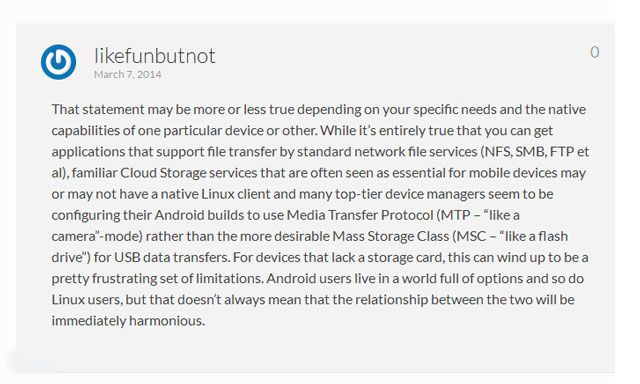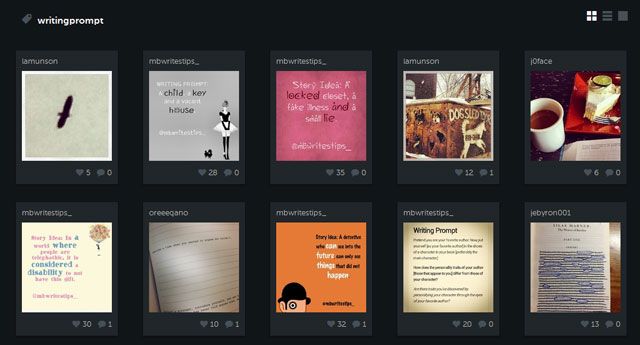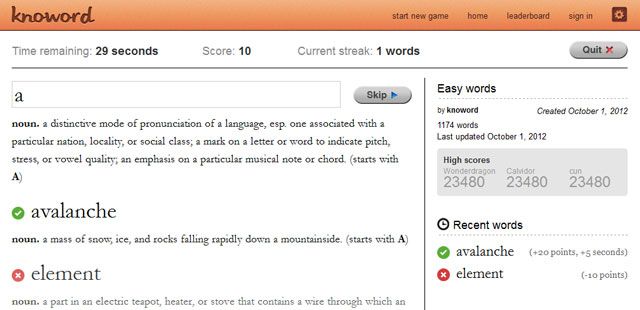Writing is not important...communication is.
Someone said it wrong. Good writing is good communication.
Like all useful things, it doesn't come overnight. It takes practice, perseverance, and some more practice. You might ask why. It is simply that everyone can write, but not every one is a writer. Audio-visual modes of communication, emoticon-full text messages, and social updates have sandbagged the soft skill of writing. But even as wearable tech and voice interfaces pour into the future, this "old-fashioned" art remains the crux for success.
It's not about writing the next great novel. It's not about crafting business letters. It could just come down to writing an intelligent Facebook status message and creating an impact. Let's talk about the importance of writing well, and how we can start the journey with ten ideas.
The Importance Of Skilled Writing
The communicator leads the pack. Here are some back-of-the-envelope musings on the importance of skilled writing for a successful life.
Get hired: How good is your resume? A well designed resume carried along with a well-written cover email could get you through the door.
Get promoted: Show what you know. It may not be about crafting the next contract, but could come down again to writing effective emails.
Get an education online: To be a quick learner you need to be good with listening, speaking, reading, and writing. Online courses restrict interaction and rely on asynchronous discussions through the written word.
Get your social clout: Power-users on social media rely on their writing skills to communicate ideas in capsules of social updates. Conciseness is their ally.
Get to be an expert: Be an ideas man. Ideas need to snowball. Words help you develop them and spread them around, before they are lost.
Get on with a side-project: It could be a blog showcasing your ability or it could be a serious entrepreneurial venture. Writing not only helps you research the details, but also take it forward.
Get confident: It's a real world skill, and a recipe for confidence if you achieve even one of the six points mentioned above. So, here are some baby steps to begin with....
10 Simple Ways To Develop Your Writing On The Web
Length is not important. You don't have to write reams to be a skilled writer. A deliberate intent to improve your writing skills in short spurts should get you to a happy place. Dust off the lethargy and bring the Web to your writing desk.
Start A Blog
Starting your own blog is often the advocated way. You can start one around your own interest, or bring your writing to your company's blog. Start one if your organization does not have any yet. As Yaara mentioned in her post on tackling blogging fears, people will appreciate your ideas if you share them.
Don't have a job? Maybe, you are a student? Blogging about college and teen life could help you sharpen any roughness in your writing. Look at it this way – you have already put in tons of printer's ink into writing college assignments. Why not a smidgen of digital ink to express yourself, find your own voice, and maybe create an impression on a future prospective employer. Meet some college bloggers at Harvard.
Getting into the habit of blogging is the second easiest way to practice your writing every day.
Write A Journal
This is the first...if your writing is as disheveled as your morning hair. Journal writing is private. Journaling is back in vogue. It never left, but smartphones and the Web have made writing a journal less of an army exercise. Just write. Cross the t's and dot the i's. You don't even have to be creative because you are writing about your life. Write with passion and you are a storyteller.
Take Over Social Media
Facebook, Twitter, and Google+ are grapevines that carry your musings at the speed of thought. You can blame the big three for infecting your writing skills with cyberslangs, or you can turn it around and use their constraints. For example, people are sharing poems and fiction on the microblog. Twitter's 140 character limit forces you to write persuasive words with a squeeze. That leaves no room for bullshit.
Facebook allows you to customize your posts with headlines, content, and images. Google+ is another medium for microblogging your way to better writing skills.These are large topics in themselves, so let me direct you to two bookmark worthy articles on CopyBlogger that explain how you can be a better writer on Twitter and also craft the perfect Google+ post.
Comment on Blog Posts
Don't comment like a troll. But...
Take the same new born pen skills to the best blogs you read. You read them so you know what they are talking about. Seed your ideas clearly and politely. Breakdown a successful blog post and study what made it compelling. Maybe, it was the headline that persuaded you to click it. Maybe, the magic was in the way it began. Long story short, there's a lesson right there. Maybe, you can add something to it with your comment.
You get noticed. We do it here too.
A Cue With Instagram
Take a chance with Instagram for some creative writing prompts. It's a wagon trail of ideas. Pick an Instagram photo, and try to imagine what the photographer was thinking when he or she took the snap. Attempt freewriting with a photo cue. You can cherrypick your topics with a hashtag search on Instagram. Imagining the story is your writing challenge.
Bring Out Your Anti-Social Skills
Educators Joyce Stenneke and Nadia Kalman suggest a free rein to your "anti-social skills" when you are out and about. Eavesdropping and muttering to yourself helps you create fictional dialogs and the real life around you gives all the clues. Watch the TED video for the simple 3-step process.
Let Advertisements Persuade You
Learning from ads to understand persuasion is a common writing exercise. Next time you are on YouTube, you can watch a few ads and later analyze which ads stick in your head. Maybe, they used the right mix of persuasive elements – ethos (ideal), pathos (emotion), and logos (data).
Play With Vocabulary
Increasing your word riches is an obvious advice. But on the Web you can have fun with words. Knoword is a guess-the-word game that should help sharpen the brain and the tip of your tongue. Then, there are the other fun word games too. Communicating well with simple words will also make you good writer...but don't neglect your word-hoard. Use online games to learn new words when you have a few minutes to spare!
Cut Into The Ground With Research
With Google, you don't have to wear your soles down. Thorough research is the spadework for good writing. Master the basic skill of web searching (remember: online search is more than using Google), and you will have the matter to shape your writing. Start by searching MakeUseOf.com for all the power search tips you can find if you think your digging needs some work.
Try Pleasure Reading
You can't escape this. Enjoy what you read and it stays with you. Be wide-ranging in what you read and engage with the content. One day, it will find a way into your writing. One of the takeaways from a good book is always the author's focus on details. That's the pole star for all great writing.
Read more than you write. Brainpickings.org is an excellent site for reading selective articles. It also has this little list of nine books on reading and writing.
The writing is on the wall. Are you doing enough to develop your writing, or is the skill lying comatose? Wake it up! Please give us your tips to develop the writing habit.
Image Credit: He teaches...; Blank paper (Shutterstock); JohnONolan (Flickr)









